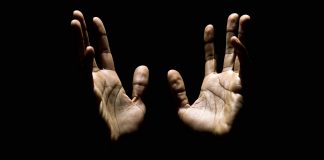The Second Coming: Escape or Energiser?
"Lianne struggled with the idea of God," Don DeLillo’s narrator says of one of the characters in his novel, Falling Man. "She was taught to believe that religion makes people compliant. This is the purpose of religion, to return people to a childlike state… . We want to transcend, to pass beyond the limits of safe understanding— and what better way to do...
The courage of freedom
“It was as if I were living in a fairy tale. And the most wonderful part was that I knew—hard as it may be to believe—that the story was true. None of the hardships of imprisonment touched me. The fear of the unknown no longer unsettled me, nor did the fact that, three days after my arrest, no one had yet called me...
We are the writers of our own future | An overview of biblical prophecy
As a prophetic book par excellence, the Bible is often misinterpreted, its prophecies taking on fatalistic overtones or frightening attributes. Properly understood, the prophecies of the Bible do more than predict the future. They can also give the reader a clearer perspective on the present.
Into the wilderness with God
This year marks the 58th anniversary of Time magazine's controversial cover question: Is God Dead?
Fear of war: how to soothe our hearts
When the fear of war overwhelms our thoughts, let us not forget that we are not alone, that God will end our suffering and give us a new and everlasting life.
Traveling with God: How we learn and grow on the journey
Have you ever travelled with someone you thought you really liked, only to see a different side of them as the trip progressed? People say travelling is a good way to determine whether someone is “the one” or not. How do they respond when things don’t go according to plan? In their sleep deprivation, will they become aggressive toward the flight attendants? How...
Love and cosmic cold
"We keep on being told that religion, whatever its imperfections, at least instills morality. On every side, there is conclusive evidence that the contrary is the case and that faith causes people to be more mean, more selfish, and perhaps above all, more stupid." (Christopher Hitchens)
COVID-19: Which end is The End?
As the crisis caused by the new coronavirus deepened and spread, it was to be expected that the phenomenon would be framed in apocalyptic terms. It is something that tends to occur in such contexts.
The One who couldn’t live knowing that I was dying
Love stories have the ability to captivate us with the details of an undying beauty, to overshadow the uncertainties about their permanence, to introduce through the front door the hope that one day we will live such a story, which will bear the signature of eternity.
The uncertainty of the religious man
Pliny the Elder wrote, in Naturalis Historia, a well-known adage: "Among [mortals] the only certainty there is is that nothing is certain."[1] Few know that Pliny made this statement in a chapter on the gods.
Thomas Helwys
“For men’s religion to God is between God and themselves. The king shall not answer for it. Neither may the king be judge between God and man. Let them be heretics, Turks, Jews, or whatsoever, it appertains not to the earthly power to punish them in the least measure. This is made evident to our lord the king by the scriptures.” These are...
What is the purpose of my life on Earth?
The unverified stories of children dying, due to severe emotional and sensorial deprivation, despite being fed and medically cared for, spread the theory that one can die because of lack of love, although being well taken care of. However, if we look more closely at the historical and personal human experience, we find that it is not necessarily the lack of love that...
God, armed violence and genocide
One of today's dilemmas disputes, dialectically, the complex reality of the Bible and the secular way of looking at the "terror of history": Is God a source of morality superior to humanism, or not?
COVID-19: Crisis prayer
A major crisis pushes us to re-evaluate the way we see and do things in the fields of health, finance, and social interaction. But how does this crisis affect our religious practices—especially the most common of these, prayer?
COVID-19: Forgiveness in isolation
When we are isolated with our family, problems that are sometimes easy to ignore become more acute, and the need to receive and offer forgiveness to those around us becomes increasingly evident.


























